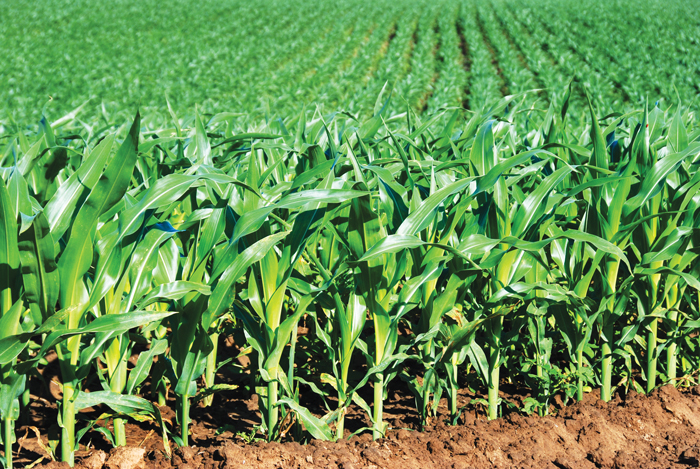December 2020
| Jenny Mathews, Pula Imvula contributor. Send an email to jennymathews@grainsa.co.za |  |
Is there perhaps an attitude, an activity or a habit in your life that may need to change? And what about your business routines and farming practices – do they perhaps also need updating, shifting, refreshing in order to keep you relevant and reaching your goals?
When my 86-year old dad was widowed three years ago, he sank into a deep sadness and a dark desperation threatened to overwhelm him since he felt his life no longer had purpose. One day I said, ‘You know Dad, Mom did not have the choice to stay, but you … you have the choice to live in a way that honours both your lives through living your life well!’ My dad was quiet, but the next day he made an appointment to have his hearing tested, and booked himself a medical check-up. He also resolved that instead of waiting for people to phone him, he was going to phone someone special every day to catch up on their news … and he does!
The following week he took out a piece of old furniture and started sanding it down and within hours it was transformed and looking brand new – so much so that all the children were asking if they could please have it. This set a chain of events in motion. He began attending auctions and bought old pieces of wooden furniture which he has restored beautifully and gifted to people. Suddenly his days were full and busy and happier. During his very lonely and solitary lockdown there were no auctions and no-one to talk to, so in spite of zero woodworking experience, he began making beautiful wooden toys. At the age of 86 he is still learning new skills every day. His confidence grows daily. My dad has changed. He is good company and spreads his unique brand of loving and caring. He still misses Mom every day –but he lives life well and is an inspiration and his great grandchildren love playing with the cars and trucks he makes! No progress is possible without a change; and those who cannot change their minds cannot change anything!
‘BUT WE’VE ALWAYS DONE IT THIS WAY!’
This has to be one of the most dangerous phrases. Some old ways are good but one still needs to examine the value of doing things the way they have always been done and question whether there may be new, different or better ways of doing. To change oneself or one’s plans is challenging, but being willing to adapt and change means you are prepared to do what it takes to build new things for a better future. Change is necessary and sometimes we need to pause and examine our lives, our business, our goals and our motives. We need to ask ourselves what we ought to think about changing. Winston Churchill once said: ‘To improve is to change; to be perfect is to change often!’

PERFORMANCE PRODUCTIVITY
A fundamental principle in business management says: ‘All of an organisation’s human and material resources must be well used in the right way and at the right time to create high quality products at minimum cost’. This means staying current and introducing timeous changes, for example we need to build a better food bank to reduce stress and costs incurred in feeding our livestock in the dry months so we are looking to plant more grass pastures and a diverse cover crop.
The performance productivity of any business can be analysed by asking questions like:
A manager is the person who plans, organises, directs and controls the allocation of human, material, financial and information resources in pursuit of the business enterprise goals and if you are the farmer that means YOU! How clinical and analytical are you as you plan your farming activities? Are you gathering information, monitoring the agricultural environment, measuring the performance of your labour, your vehicles and implements, your fields? How much critical thinking are you bringing to your farming?
Disrupting old familiar patterns in the agriculture sector
Sometimes change is gentle and of one’s own choosing, for example, perhaps we need to bring a third crop into our crop rotation system or perhaps we need to hire another field to get better rotations going; but there are more times when the need for change is so much ‘in your face’ that it is uncomfortable and very challenging. None of us ever invited droughts or climate change into our lives but we sure have to confront the issues and adapt our farming systems to better cope with these challenges.
It is easy to simply say no to change but not necessarily wise
Make sure your reasons are not just excuses and an attempt to stay in an old familiar comfort zone: I don’t have enough time; there is not enough money; I am too old to change; I don’t know how to; how do I know it will be worthwhile … change requires courage.
How many times have we not had to face new schools of thought in the agricultural sector?
In the 40 years we have been farming we have had to absorb many changes, new technologies, changes in consumer demands, better systems, pressures on performance in the face of declining profitability; changes in insurance plans and financing opportunities. Then we hear:
CONCLUSION
Take courage and recognise that pressure to change is ever-present. Not everything has to change. We do however need to network, educate ourselves, plug in to the expert opinions and recognise that adaptation in many forms is integral to the life and work of a farmer. Successful and dynamic farmers are essential to building our country. Developing both as an individual and in one’s farming is a constant and necessary force. Being willing to listen, learn and change is the beginning of success. And a final thought: ‘Yesterday I was clever so I wanted to change the world. Today I am wise so I am changing myself!’
Publication: December 2020
Section: Pula/Imvula